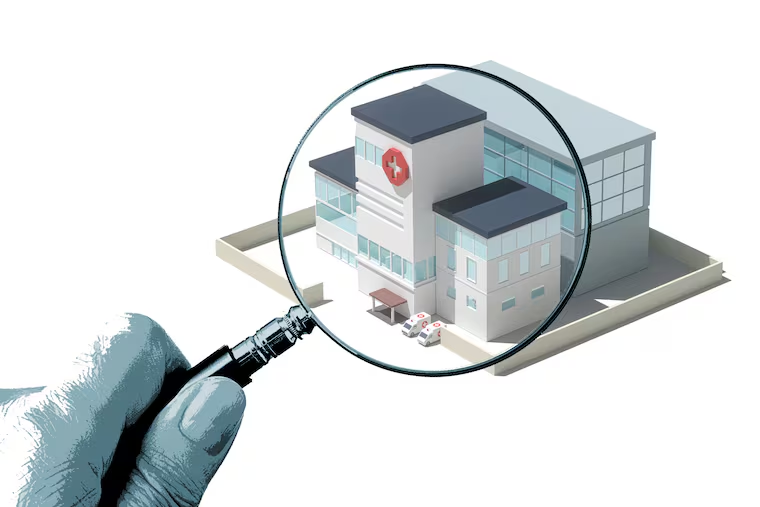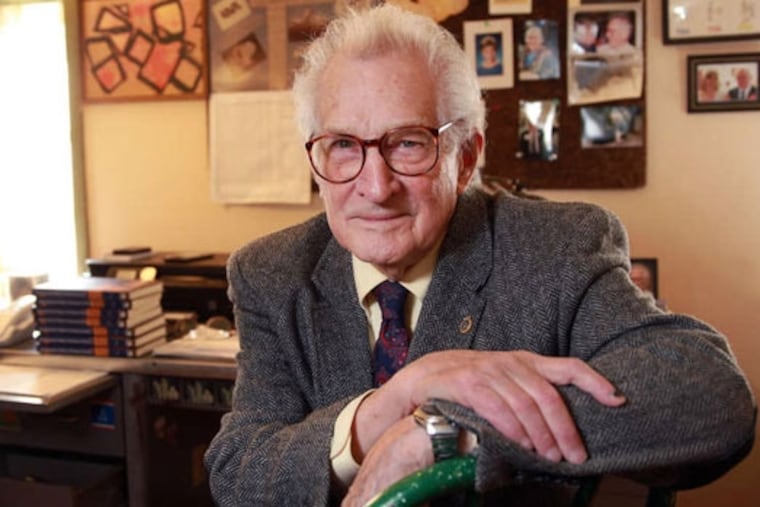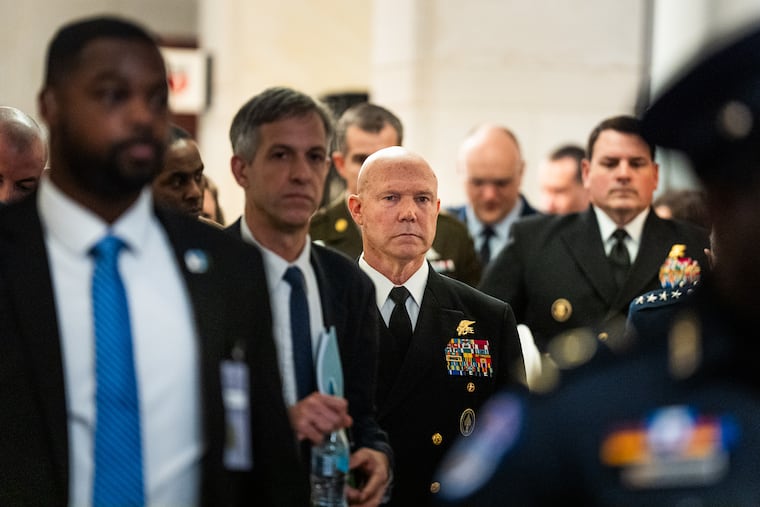Skip to contentJoanna Fong-Isariyawongse, The Conversation
Barry J. Jacobs and Julia L. Mayer, For The Inquirer
Joanna Fong-Isariyawongse, The Conversation
Joanna Fong-Isariyawongse, The Conversation
Barry J. Jacobs and Julia L. Mayer, For The Inquirer
John Lin and Jalpa Doshi, For The Inquirer
BriarRose Edwins and Hayley Goldner, For The Inquirer
Layla Bouzoubaa, The Conversation
Marcia Dunn, Associated Press
Adela Suliman and Kasha Patel, Washington Post
Marcia Dunn, Associated Press
Adela Suliman and Kasha Patel, Washington Post
Noah Robertson, Tara Copp, and Ellen Nakashima, Washington Post
David Ovalle and Cate Cadell, Washington Post
Geoff Mulvihill, Associated Press
Noah Robertson, Tara Copp, and Ellen Nakashima, Washington Post
David Ovalle and Cate Cadell, Washington Post
Geoff Mulvihill, Associated Press
{"ENV":"aARnQ3RUZ0BTb38CXCJaQn9zdEB0MWAFaFAMCg==","CONTENT_BASE_PROD":"UAVnRFwxAFhrYF0BdAtgA3xzZEB0IndZf2NSBmAydAF8Y3BPdjJ0TH9jWk9gHHAAf3B7W3Yid11rYHxPdyJgT3xjaEB0MnQAf2B7W2MxY158Y2gHdyJ8AXwFfE53MW9ea2B3X3cLY1k=","ARC_ACCESS_TOKEN_PROD":"VV1ZBHYhXgBTBHAGdyEFA3xzcAZ0MnRCf3B8BWMidAR8XWhAYAxjXH9jWk90HHQFfGBkB3YiZAB8BWQEYyJ4AHxgf193HFYGfE1kT2AMZAF8YGAEdyFgQn8FfE53DHxCf2NZXnYid118Y2tfYAx0Bn9Nf1tjDGRMa2BoT2MiZE9/Y2dbYBx4B39ge1p0DGdYa2BoBnQicE98Y2AEYwxkAHxjaE9jMXwHa2N/XmBUYARoY2daYyFgT2hdWgd0DHAHa1p3XmAMf15/c3Nbd1RwAA==","GRAPHQL_KEY":"VF1ZRFsLXU1TYGgDWjFWA3xNVgd0Mn9dfE10BGMLbAR8TWRPdCJWB3xNVgZgHHwGfGNdW2MieAdrY1ZOYDJwBWtjeAd2IntYfHB8T3QiYEJrYGRAYyFsAHxzdAZgC2AGf2N8T2MnCAg=","GATEWAY_URL":"fm97TmALAFpSY2ddWAxaTX9jdAZ0MXhCaF10TXQyfE1+c2NadDJzWWtzYAZ0ImRPfnNkB3QycE1rc3NeYAxeTX9NZARgDGBMfHBoAmMxc1l8YGhAYwxkCA==","GATEWAY_SLS_URL":"VWNdB1whWUJ8cABeXQxaBH5jZ1t0MXBNfGN0B3QhcAR+Y3QEdDJ3WHxjcAJ3IWxPa2NjW3QybEJ/Y2NfYzJwTX9dY15jDF4HaFprWmMMd1l/WmQDYAxgCA==","FEEDS_URL":"fm9/AmBVVk9VcGNDWlQFA3xjZ1p0HHBNfHBgQGAyZ1x8YHRPdDJwBXxzZE9gHGRMfE1SQHQycEJ/c1oHdFRvXGtjd1tgDHxPfAVkB3cLb1h8c2BNdwtsT2hdeE1gDHxNfFp0TnYxb15oY2dbYDFjXnxzcAo=","RESIZER_KEY":"fHBCB2NVcAFUWlYFWDJ8A3xzYE50ImdffHNkBHYydEx8XXRNdiJWAHxwaAZ2MmwBfGB0BXcMYAFrXXAGdFRsBnxdcAd3IlZMaF1kBGAycABoWmBNdzFgTWhgdE13C2BNaFpoQGMBCAg=","GOOGLEANALYTICS_ID":"VGBdXlsub0ZSBFpOYAtWA39wfAdjMmNdfFp8T2MiY1x/cGgHdxx0AX9wYE5gDHxM","TWITTER_API_TOKEN":"fmBaT1shf1h8BXtCXS5sA39dfE5gMm9ffE1gQHYxYAR/Y2hAYAx8BnxjeE53C3wAfF1aBHQyeE9rY3hPYwxvXmtjdE90IntdfE1zXncxYAd/Y3xPdAx/X2tdaE90DHRNa2NoT2MxbE9oXWhNdDF8B2tjZ1pgC2Ncf2NZW3RUe1hrYGhOYyJgTXxjd150IWwHa2N/W2AMZ118cHtddiFjXmtzYAJgHHNdfnN/W3QLY1h8YH9eYDF7WWtda113MWRCaGN7XXYyXgBrY2tad1RsTH9wd1p2IWxNfHB0QGMMUgVoBWNfYAtvWWtdXVp0C3AFfHNZWnYxeE9rYHtaYzFsB35je1p0HHBCaE1kAncLb15oBX9cYwtkTH5gZE90HFldaE13XXcxe19+c3NdYzF4TWtda113Ml1faE1oCg==","GOOGLE_CLIENT_EMAIL":"VWN/B1wxRUZ8Y1lOdAxaTWhdZAV0MmwEf01jXHQifAV+c2NcdDFwBXxNdAJ3MlJPf3NwTnQyZ1lrY2AEYAxwQn9zc110VHwFfnBoT3RUbEx8TX9bd1R8BnwFaAJ3DHBPaAV4A2MMXVhoBWgCYwxgBn9ge1pjC3gEaGBrXmAyf1l8cGQEdFR/WXxNWk53DHtZfnNdW2MycAd+c3tdYyJZX3xmDAo=","GOOGLE_PRIVATE_KEY":"UARwBHQcfwZrTXgFY1V8A39deAZ3HHQGfGNWB2AcYAF8c3gEdjJsB39jfE50DHgGf2N4BXYyb1l/Y3BPdyJjXH9aeAV2ImRNf3BgTmAyeE9/TXRAYBxwTXxdY1t0MmBNf3NdW3QhbAd8c3dbdiJnWXxwaAV2Mn9da1pgBmAMYExrY1VcYDJgBHxjY192MXBMf3NaQHYic11/cGgFdzFvX3xaYE52MnNZfmNSBnYhf1l8c2RPYDF/XH5zZ1x0MXgBa3B/XGAMbAdoWn9ad1R4BWtzf153Il1fa11wTWMhcAF8c1IDYDJeTWhjZ1pgC2wAf2NkA3RUZE1rXVVadDF4B35gZAJ0Ml1Za2NrXnQLb1xrXWtfYwt8QmtjaE93MlldfnNjW3cxZ15oTXgDYBxZWWtdY1x2MXwFfmN0A3dUcAdrc3tfdyF8T2tzVgNjIl1da118AmMxZAdrcHtbYwxdWH5jZAJ0HGwEf11kBnQMeAZ/YHRAYAxsB39gaAZgVGxPa2NSB2MyUVh8WnwHdzJ/WGtdYAV0MmRNaF18B2MMcAVoXWQGdyFgTXxaaE93IWABfwV4B2AcZ1hrXWBPdzF8TWhaeEB0Mmdca1p3WnYyZ1x/WmgCdBx0BGtdZAR2Im9Ya2NaQHdUeEJ8XXQHdCFwT2hja1tjMXhPaGBnX3cyY158c11adjF4BWhda15jDFIGaAVkT2MyUgV/c3NddFRvX2hNd1t0DFIGfmBrX3dUYAd8TWQCYwtwBWtaZ1x0IXAAa3B7WmMiYAd+c1VeYAtwTGtdYANgVGQBaE1/X2ALf15+Y2tfdAtwQmhNZ153MlIEaGNnXHQhcARrXWtfdzFkBX5ja1t0HHQBaGNkA3cxY1l+c3QCYAtkTWhNZ1x3Ml1caE1VXGMiUk1rY11edzFnWGtaa1x3C3Nda3BoBXQydAF8c3hNdwx0T39zeE9jMmQGf2NST3QcZAV/XXhNYzJ0BXxaeAd0ImQHfGNoQGMMeAF8c2QHdzJnWX9aZE1gMWBCf3NSBHYifAd8c3RPdxx8T39zeAV0ImNZfFpoBncMYAdoXV1aYyJ/X2tjUkB3Imdff1pgBnYyfEJ8BXdfdBxnWGtdd1xjIWxCa11aB2AyXgRoWmNcdxxwAX9NVgJ3VHtfa3NjWmBUeE1+c3wDdAxeBnxgY1p3MXBCaF10T2MLb11oBXteYDJvXH5ga150IWwBa11kA3cMXgZ8YHdddjF4QmhNWgN2Ml4FaGB/W3YhYAFoY1ledFRwTGtzWVpgVHxPaGBrXHQcZE9rY2teYFRzX2tgZ11jC2dfaF1/XHQxbAB+cGtfYAxeTGhgY1p3Ml4Aa2NZX3YiUgZrc3QCYDFsTX5jXV12IX9Za11zWncLcAF8Y2hOdDJ7XX9dcE13DGRMfF14TmMiUVh/TVJAdyJ8AH9NcEB3MlZPf014BnYieAF8TXNediJwTHxjVk52InddfGNwB3RUcAZ/c3wHdBx7X2hdWgVjMnBNa2N0QHccfAd/BWAHYDJvXXxzf1p0C3wAaF1rXWMMcEJoBWtbdAxvXX9jXV9gMWBPaE1zX3cLcABrY1VddCFgQnxzaAdgC3AFf3B0TWMhYARoXVoHdAtgQmtjY1pjC2xMfmNzWncLf19oTWNbYDJeAH9waE9gC2xNfGNjW2BUfE1oWndfYFRgBmtgd1p2MXNfa11VXncheAZrYHQCdDJjX35zWVxjC2xMa2B7XndUe1hrY2QDYAt8BH5jWVpgMllZaAV4A3QLc1loWmNfYDFwTWtzYAJ0C29Za3NnW3dUY19+c3gCdjJSAWtwe150IXgAa3BoAnYhZ11oXVlfdCJgQn9jcEB0HHdef1pkT3QydEx/WndedCJ3WXxdc1t3MnRMfwV0QGMidAZ8BWBOYyF/XWhdfARjMWwHa2NgBmAcbAFrY1VadCJ0B3xdWgd3DGAFaF1/W3cid19/c1IHdDJkTGtda11jMnQBf3BnX3RUf1l8Y1ZAdCFzWGhgY1p3InRMa2NzW3cMZ15/XX9edjFkT2taY15gVH9faAV3WnYyf1x8YGteYDJWAGhjf1x0MWQHaF1kBHRUeARrcGtadyFgAX5geANjIl1ZfE1ZX2AMXV9oXX9bdxx0BmtaY153IlJMfmNrXncxZAFoY2tfdiJST2tgZ1pgVHNda3N4A3chYAFoYGNddFRkQmtad1x3IXhCa2N/XHQcXgZrXXgDdzF8AWhjd112MWQEfmNVXmBUZARoBXRAYDFsTWtjaAN3Ml5MaFpjXHQhYE1rWmNeYyFnXGhaZE1jMmddf3BkT3Qib19/TWgFdwx/XnxjcE90MnBPf1pgQGMMb1x8Y2BAdiJvWX9zYEBgHHhPfF1STWAcYAd/Y11edzJ3X3xjfARgHG9ZfHBoQHdUb19rXXNediFwAX9ad1t3IW9Zf110B3QLbAFrXV1adCJzWH9gZ152IX9Ya2BnWmAcZAR/c2BPdyFjXWtdd1x3MX9caF1gB2MxZ1hoTXwHd1R/WWtae1x2MnQGfE17X3QLcAd/XWNddDFjWH5wYAJ3IXhNa2B3XHQhbEJoXVlfYzF8B2gFY1x3VHNYfnNaQHQxeAFrY39bYAxeBGtge1p0MXtda2NoA2MLbAdrY1lbdzFzWGhNfAJ0HGAAa11VXGMhZAdrYGQDdFR8TGhjf193VHABfnNdWncMXgBoTV1ediFvXn5jYANjIXtdfnNgAndUZ19rWmtcdCFgAWhNXVxjDFlYfHNSTmMibEJ8YGhOYzJkBH9zUk5gMnQEf2NkBncMYAB/WnhOdwx3WH8FaAdjMlFcfE10TmMiUVl8cHhNYwx3XmtdWkBjMmNcaGN0BXYxbABrY3AEYAt8AXxzcEB0MngFf2NWAnRUc1hoY2dbdwtsBmhje152MWwEa2B7WnccdE1/cHwHYzFwBGtjfEB0MmQBfmB3W3dUZ1hrWmhAYBxnX39ze190C29Za118A3QiXV9oBWBOdCJ4BGtwd150MXAGaGNoQGBUZE9/cHgHYAtkBWhde113IXgAaFp/WndUcAdrXWtfdCJdXGtad1t3VGQBa1p3XmMLb19rY1YCYzF8AGgFY19jIl4EaE1/XHQxZEx+Y3gCYAtkQn5jf1xgC2RMaFpgAmAxZ1xoTWdfdjFkBWtad1xgC3wBaF1/X3QxZAFrc3dcdFR7X2hjc1pgC3hPfnBjWnYyY1x8XXgEdwx0QnxzaAd2In9ffGBoB2Ayc11/TVYHYzJRXn9zYAZgMnQBfE18TncMf1h/WmBAdAxkTXxaaEB0ImdZf2NgQHcyc158WnhAdDF/WWhaf153IWNffGB0BWMhf1l8TXhPYFRgAHxaZ15gHF5MaF1wT2MLeAV/Y1IGdBx7WGtweEB2IWBMf01kAmMMZAFoTVVdYBxnXX5jd110InNZa3NZWmAyY1l/c3NfYzFgBmtjUgZ3ImwFa3B3XXYhZE9rcGQHdiJSTH8FZ110DHAAf3B7XncLZ1loTVldYDF4BGhjd19gMXwGa2B7XnchYE9rWnRNdiF4T2hja15jDFlYfmNrWmMhYAVoWngCYAtzXWgFZ11gMXxCa2B7XGMhc1loYHwCdyFkQmtzaANjC3BCaAV8T3QxcAV+YGtcYAtkAGgFd110MWBMfnNrXHRUf1x+Y1ZPdiJgTX9gZAR0DG9dfGN8TnQiZEx8TVJAYzJ4T3xze15jDFZCf3BkQHciY1h/Y3tedzJ8B39adE10IWwHf3NwBWMMZARrY1VadwxsBn9jcEBjMnBPfHNoTmMhcAZ/cHhPdwtjX2tdaAdgMmQHa2N3W3dUYE98TWgFdAxvX2hjY1p3VGxPaF1/XnccYE1rY1laYFRkAX5zY192ImAFa2NrWmAyWVh/c2dbdiFsBWtgfE9jMllffmNkA3dUZE98TWQDYAt8TGtgY1p0IWRNa118AmMiXgZoXVVbdwtsAX5zVgd3C3NfaF13WmALeAB+Y2tadFRgTHxdWVtjMWBNfnNzWncLe15oY3teYDF8TWtjVVt0VGNfaAVjXHcxbAZrcGNaYFRkBWhNWgN0VGdda11zXnchZAV+YGQDdzJdWWtwe153IXxNa3NjW2MhfEJoY2ted1RgAX9jaE50DHhNfFp8B3ccZ15/WnQHdiJsB3xdfAd0HGNcf3N4T3QieAB8c2AFdzJkAGhdUkB2MmRCf3NnX3QMe11rWnhAdDJwBn9zaAVgMXAAfHNoQGMMbAZ/c3tadyJwBnxNa1tgVHBMaF18B2Ayf19rYGNedzJgTXxgeEBgVGNefGNwB2MyY1h/Y2hPYAt7XH9waAZ0VGAGa3N7W3cydAZ/XWgCYzF8AGtzWVx0VHBMf3N3XHQidEJrc11bdDFwTGhjWgR2IXgEaE1rXndUbAVrYHdedCFwTWtjXV90HFIFf3NnXmMhb15oYGdfYzFnXmhde11jMWNcfmNrX3cLbAZrcGdedxxdWGtjUk9gC39Ya11SAnQhc15+Y2NbYDF/WGtjd1t2IW9da3NjXWMLeAFoYHtbYDJkBX5zZ11gMWdfa2BnXHRUZ15oTV1adjF8T2tdZ1p2ImAHfAV8TmAyZAZ8BXxNdAx7XnxdUgdgDGRMfF1wQGAMY1h8Y3NeYzJsT3xjaE93C2NZfGNoBHQhf11/YGdadjFjXH9aZAd0DHQAa11WQGAxb1xoY2QGd1RzWWtjd1tgDHAHf2B/W2AycAB8YHdcdAtwBH9jYEBgDHdda1p3XnQiZE18YGdaYDJwBmtjWV90Ml5NaGBnXHchYEx+YHgCdzFkT3xzf113DHRMaFp8B2MxcABrc1ZPYwxdXH5je1pjC29Za3N3W3QMb15+c39edwt7Xmtwd1p2Il4Fa1pnXXQyd19rXXQDdCF/XWhad1t3MXwFa2N7X3QhcAFoTXtfd1RkTH5ga1t3IW9Za3NrWncLYAZoY1oDdzJeTX5wa11gVHwAa1pjW2ALZEJ+c2tcdCFvXWhjWVp3IlJCaAVjXHYxbABrcHQCYAt/Xmtgf1p3MX9cfnNoT3Yye11/BXwEdwxgBXxddE1jIm9ef11wQGMyfE18Y3xPdjJRXX9NcAR0HHQGfGN4BXcLf1l8XXRPdiJ0AXxdWgZjMmAFaFprWmMieE1/WmgFdjFjXXxza1p2InBPf2NaQHYyYARrYGhNYFRwAWhjVVpjIWdda1p7W3cxfAR/Y3gHdyJwT3xzfAZgMl4Ea1pjXXdUY19rY3deYFR/XmhjVk13DHNfaGN3XmMLbAV8cGtadCFkTH9ddAd2Ml4Aa2N7X3cMWVh+Y1VdYyFnWXxNd11jMWwEaGNVX3YhY1hrXVoDdzFvWWtaf11gVHAAaF14AncLf11/c3tcdiFzX2hjaAJgVHxPaF1ZXmMiXkJrc2NadjJZXmhjXVx0MWwGa2BjW2ALe15rc2NddjFkTWtwYAN3IXAAfGNzXGMxb15+Y2dddDF8B35jd1xgDF1ca2B/X2MhfE9/TXwHdiJ8AX9zdAR0HHQEf2BkBXccb118XWAGYDJ3WX9NeE50HGwBfHB4QGAMYAF/BWgFYyJgB3xjf15jMmdYfE1dWmMye1xrXWBAYAxkTWhjc1t3MWBMaF1gBmMid15rc3hAdCJwAX9dcAd0MmBPfFpjWnYiVgZoYHxPdiFgBGtge1xjImdfaF1kBXYhY15rY3tfYwt8QmtdaE92InAEf3BkB3Yxc1hoY2dadzFwBn5zYAJgDHNdfHNWT3QheAB+c1oCYAxSAWtwe1t0Il4BfnNkTWMhY11oY1lbdjJZWH9gZAJ2IWdYaE10AnQcWV9rY2dadjJwBmtzdAN0C3NffmN/XHchcAB+Y2QHYFR4QmhdZ11gVHAGa11rWmMhb1hrWnteYzJSAH5zY1x3VH9ca3BrXXdUfEx+c2NaYwt4QmtwZAN3C2QBa3NzWmMyUkJ+YHtcYwxkTX9jfE90Mn9efFpoBGMif1h8TWROdAx7XH9zWgdjIn9ffFp8TWAybAB8WmgGdCJ4TH9jc1pjMnQBf3NoBXYycAZ8XXwGdAxjXX9jZE9gHHQHfHN4B3ciUVh/YGBPdiJgT39jZAZgHHgFfF1gTncifAF/XWAK","BLUECONIC_ENDPOINT":"VHNSBVsxZAdUf3NFXTFGA3xwaAZ2ImAAf3N8BmAcZAR8Y2hAdzJ0T3xze1tgDHdff01oQHQhY1h8Y1Vedxx3XGtdWVtgHHgBa2NWB3ccVkx/XVVaYFRgAGhadAd3VG9f","BLUECONIC_STORE_ID":"Ul14AnRUAQVTWgVAYxxaTXxNZ1x3MXBCf11zXnccVgR+c3BAdCFwTXxjY1p3MWdca11STnQLeAZ/TXdadzJeBXxddAd0ImQGaGNSA3dUYEx8Y2gGdFR8TGtzY1t0VHxPa3NoQHcMWVxoBWQFdwxwCA==","BLUECONIC_KEY":"fH9BWnYxBU9oWXNPWAsFA39zdE93MnAEf2NoB2AMZAF8cHxPYwEICA==","BLUECONIC_SECRET":"UG90B1tVY0RoXWhOXQxaT2tzeE93HGxNfnN0QHQxYE1/TXNcdwxkQmhNeAZjDHRNfnN8AnQMYEJrY3QCYAtsBn9zcAd0MnNYaGB0BWMyfEx+Y39eYzJsBmhddEB0MmNZfF10BQ==","AMP_AUTH_BASE_URL":"VHBrWXYiUV9VBHcHWjJaTXwFZAV0MWwEa11gAnQxbEJ/XXQFdyJ0TWtwaAJ0MWRMf2NzWmAMeE1+c3AGdyJnWH9zc110HHQEfnBnXHcie1xrY3QDYzJRWGtjeE9jC3BPa2BoTWMye1xoWnROYzJnWWhdf110Mm9ZfnBkTWBUY19/WnRA","AUTH0_DOMAIN":"UwRkB1gLeAd+YHdGdAxaQnxjdEB3MmwFf3NjX3cycAV8TXNbdDJnXHxjdAN0In9cfGN3XXQxYAV8TWAGdDJeCA==","AUTH0_CLIENTID":"f3AIT1wxZE1+f1lPWDFWA39gfE93MmQFfFpgQHQcbAZ/Y2gHd1RsTHxNVkB3DGAFf3NWB2MyZAd8BWdediJgAXxgaE5jMmBCfHNkBHRUYAFrXXxAYzJ4BWhdaEB3DHQAfGNST2ARCAg=","PIANO_ID":"VH9VAXYyd0d+YFUHdiEBA3wFdE90IngAf2NaBHQidAR/YHxAdzJ3XH9NYAo=","MIXED_CONTENT":"aARBBFo+bAdTYHsFWFV4A3xwYE9jDHAEf2BoB3QMYAF8Y1ZPdAx3WXxzcEBgMnBNf2NjWnQcdExrXWAHdyJjXHxgYEBjImBCf3BjW3cLbEx8cGAHYBx4Qn9afE5jIWwHa2NrWmMLbAE=","VIAFOURA_SITE_UUID":"UG93B2MicEJVYEEDWxxaQmtdYAZ3InwEa3NkB3cxfAV+Y2RNdDJgTH9NZAR0HHNYfF14QHccYAZ8c39bdzFkT2tzeAR0MnxPfmN8BnQLeAZoY2gHdBxSTH5ga150VHxPa3N4T3QMVk9+c2gHdwxSCA==","GOOGLE_CLIENT_ID":"fwUJBGMuUgBSBXdeWlRgA39jWkBgMmAEf3B0BmMMYAZ8YHRPYyJwBnxgZEBjC3wEf2N3XncLYAR8cHgHdwx3WXxgaE9jDHgGf2B7XmBUYAZoWn9bdxx7WGhaaE1jMWNcfE1/WmAyeAZ/WmBNYDFzWHxza1pjIXxMa1pjW3YydAZrYHdadBxgT2gFe152IXgEa2NSAncMcAVoTXBNdyJzXWhNUgJ3HHRPf3NjXHcic1x+Y3hAYwxwBHxgdEB3InAHf3NwT3QiXkJ8Y3xAdzJkBQ==","AUTH0_BASE_URL":"UmB7XVshQUJTcABCXAxaBGtzcAZ0IWRCf2N0BXcheE1+c3RPdDJ0Qn5jYAV0IWBMfwVnW2MxbAVoWmQFdDJjWWtdcAZ0DH9Za2N4TnQMbE1/TXNadAtwTH5wZARjMX9Zf2BoBWMMZ1l+dgwK","CHARTBEAT_DOMAIN":"VW94AlshTV1/f0EDWAtGA3xgeE93HGNcf3N4B3cydAd/cGRPdzJ0B2tjWk9gHHRM","G_OPTIMIZE_CONTAINER_ID":"a1pSBVoxTUx8YEEGdjJaT3xNeAJ0IXwFaF1oBXQMdAd8c2QCdAx4BHxjeAM=","G_TAG_MANAGER_CONTAINER_ID":"UnBdRHY+c19Tf2ACXCEFA3xdYE50Mntef1poBWMMe1h/YGBOdxxsB3xaYAo=","SF_CLIENT_SECRET":"VH9BWHYhb1xTY1IEWxxaT2hjY1t0C3xCfF1wQHcyUgR/c3NedxxeTGtzf1x3ImRCf11wBXQcZEx8XX9cdwxSBn9je113MnRMaE14TXcccExoY3BNdCFkB3xzdAN0VHhMfnN4AnQhbAd/XXNadBxsBH5zZ1t3MnhPf2N4BnQMbEJ8XWQFYzF8TXxjc1x3MngEfF1wTXQyYEJoBWhAdyF8QmhNd150MnwFfHNjXHQxY158TXQEYzFkBX9ADAo=","G_RECAPCHA_V3_KEY":"a397BnYyUUN/WlVeXDFaA3xNYE12Indff2B4TXQydAF/WnxNdzJ0QnxNVkBjDHgAf2B0TXYibAR/XXBAYDJRWHxzUkB0InRCfF1/W3RUbAFrWmAHdDJgB3xNcEB3InQFfHNSTncMc198YHhOdCFkBnxgf150InNYf11WCg==","G_RECAPCHA_V2_KEY":"U01nQ2MIe09oWVVcYyFgA3xdZAZ0MnwGfHNgTXQydE18c2hOdyJ0QnxzUk10DHxMfFp4TXcMe1h8Y3BNdDJ/WHxwdEB3InwHa2BkQHcyY1x8YH9bdxxwQnxafAZ0InAFfHN0TWAMcExrY2gGdDF7XnxdY1p3InRPfAV8Cg==","GROWTHBOOK_CLIENT_KEY":"UmBCBlwxe1pSf39EYAtgA39weE93HFYAfGB8BncicAF8TVZAYAx7X3xjYAZ2InQAf3NoBHQyZEJ8YHRPYwtsAA==","SOPHI_HOSTNAME":"fGN/WVsMe1tSXWNNXQhWA39gaAZ3DHQEf3NwT2AydEJ8c1YGYAx3XmtdZEB0ImQHaF1oT2AycE1oXWgK","HTL_SCRIPT":"VFlVWXQMfE9SWkVYXCEBA3xwdE93MmQBf2NoBHQiYAB8c3hPdxxzXH9jZE93DHdYfE1SBnQyZEJ/c3dedxxkBGtjVk9gDGRNa2BjWnRUbEJrY3gHdjJWBX9deAdjDH9Za2N3WncxY1l8BX9aYzFgAX9ae190C3Nca2N4TWMMfAR8YHtdYwx8AGtzVV13VHNd","LIVEBLOG_WS_SERVER":"VXABAnYid19SYFlddBxaTWhjcAN3MXxNf110AnQiZEJoXXAEdDFnXHxzcE10MXNcaE1kBnciVk1rXXBAdDJRWX9zY110VHwEfHNwBXcLc1x+cGhOYwtsCA==","SOPHI_SCRIPT":"UgVCTWAMbAd+Y1YCYwxaQnxNcAJ0MXgEaF1kTnccfEJ/Y3AGdCJgTHxNYAJ0DF4EaE1kBHciVgVoY2ADdyJ7XHxwZ1pjC2xMfHNzXWMyUgV+cHdbYAxZXGhdUgRjMmxPf3BrX2AyZ1lrcHQHYDFsB3xNUgZgDG9ZfmN4BWMyd11/WnxOdzJ8AH9Na1pgMm9da2BrWnQLZE9/XVpOYFR8AGhjXV92Mm9df3YMCg==","STATS_WIDGET_CLIENT_ID":"VF17BFgMVgVQBUIDdjJaQmhdZ1x0ImRCf2N0T3chbEJ/Y3AHdzF4BWhjc1t3IXAFf3N0TncibAV8c3QCdDJ4BX9weAJ3InAI","_id":"827333d781afe9bf194144cdf3a1ae10bef213406e7aded5e31f4f1b4f0ee340"}























